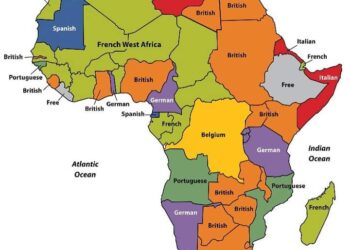The Minister of Women Affairs, Dame Pauline Tallen, has raised alarm over the proposed National Diaper and Sanitary Pads Policy meant to increase the import tariff on Diapers and Sanitary pads from 20% to 55%, saying this poses great danger to Menstrual Hygiene Management (MHM)
Tallen disclosed this Tuesday in Abuja at a joint ministerial media briefing ahead of this year’s Children’s Day to be celebrated March 27 with the theme: “Effect of COVID-19 Pandemic on the Total Wellbeing of the Child: The Way Forward, and Menstrual Hygiene Day to be celebrated March 28 with the theme: “It’s time for Action” to ensure girls and women do not feel limited by their periods through increased education on Menstrual Hygiene.”.
She expressed worry that currently about 37,000,000 adolescent girls and women of reproductive age lack access to menstrual health hygiene products due to its high cost in the country.
She noted that any increase in the importation tariff will affect consumers’ price and the purchasing ability which will be detrimental to women and girls, knowing that sanitary products are essential commodity.
She explained further that high cost of menstrual products which will in the long run be borne by women and girls will definitely affect school girls, thereby creating what she termed “Period Poverty” – a situation where women and young girls lack access to sanitary products due to financial constraints.
“This Policy will no doubt affect the availability, affordability and acceptability of sanitary pads in the country,” she stated.
The Minister also said the convid19 pandemic exposed children to increased risks of different levels of violence; including physical and emotional abuse, sexual and gender-based violence, online sexual exploitation, amongst others.
She therefore urged government at all levels including all stakeholders to ensure the protection of children, regretting also that only 18 States have domesticated the VAPP Act, while some who have domesticated it are yet to make it Law in order to ensure that perpetrators are brought to book.
“The economic vulnerability as a result of COVID-19 Pandemic which led to closure of schools and disrupted economic activities no doubt increased the threat of child labour, child marriage, kidnapping for ransom, abduction and child trafficking, as well as increased Gender-Based Violence across the country.
“As a Ministry, we will continue to echo the fact that every child and young person in Nigeria is entitled to enjoy his/her fundamental human rights, as provided for in the 1999 Constitution of the Federal Republic of Nigeria.
“As custodians of the Child Rights Act (CRA), 2003, we will continue to engage with the remain 12 States who are yet to domesticate the CRA, while also monitoring the implementation level in the States that have domesticated the Act. The Violence Against Persons Prohibition (VAPP) Act 2015 also gives credence to the desire to ensure a just an egalitarian society where the Nigerian Child will reach his/her full potential,” she assured.
“Governments have a critical role to play in ensuring that COVID-19 prevention and response plans integrate age appropriate and gender sensitive measures to protect all children from violence, neglect and abuse.
“Child protections services, advocates and workers must be designated as essential to provide essential services tailored towards the safety and protection of children at all times,” she stressed.
Earlier, the UNICEF representative in Nigeria, Peter Hawkins, noted that Covid19 is a child rights crisis which brought 90% disruptions to health services, nutrition programmes, water, sanitation and hygiene services essential to children’s lives and futures, stressing the need to bolster them in order to save children.
In her welcome address, the Permanent Secretary Amb. Anthonia Ekpa, tasked all on meaningful and enjoyable life for Children especially the vulnerable




